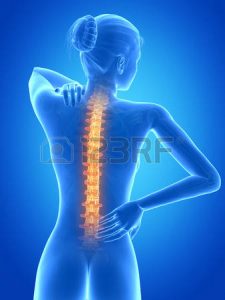Honey Carrot Cake
[amd-zlrecipe-recipe:6]
[amd-zlrecipe-recipe:6]

Ah, popcorn. A movie staple, a campfire favorite, even a Christmas decoration. We’re big fans of the stuff here at our house. The way we enjoy it, though, is the semi-old fashioned way: we make ours with the air popper (the truly old-fashioned way is in a skillet, over a fire, just in case you were wondering). Back in our pre-microwave days in the 1980s, my mom always made popcorn with the air popper. She’d salt it a little and mix in some melted butter. Mmmmm…
Then the microwave relegated the air popper to the back of the cupboards, taking up space alongside the other hardly used appliances. It just seemed so much more convenient to just pop the bag in the microwave. Sure, sometimes a good portion of the bag’s contents were either charred or completely unpopped, but that was the trade-off for a pre-seasoned and effortless bag of popcorn. That’s the way it was for us, at least.
For Christmas in 2008, my parents gave us an air popper (we’re still using the same one) and some fun serving containers. We stopped buying the microwave stuff and have only used our air popper ever since. Though this is our preferred way to pop, there are other methods, like cooking it on the stovetop or microwaving popcorn kernels in a brown paper bag. Each way works well and is better than the stuff sold pre-packaged at the store. Here are six reasons why you should take the boxes of microwave popcorn off your shopping list…
1. Homemade popcorn is frugal.
Hence the mention on here, right? There is no denying that buying the popcorn kernels is much cheaper, especially if you can find it in the bulk food bins at the grocery store (most common in health/natural food stores). With microwave popcorn, you’re paying for the bags, the brand, the oils and seasonings, and plastic packaging. For the same price of a few bags of microwave popcorn, you could get pounds of the kernels. It only takes a half cup of kernels in our air popper to yield a big bowl of popcorn. A pound of popcorn goes a long way. Even if you buy the popper (which run around $15-25), it’s still the more frugal way to enjoy popcorn. Just by skipping microwave popcorn and getting the kernels in bulk, the popper soon pays for itself in savings.
2. Homemade popcorn is less wasteful.
Whenever I make popcorn, there’s maybe two or three kernels left unpopped, maximum. And I’ve never had burned popcorn making it with the air popper. All those burnt/unpopped kernels at the bottom of the microwave is waste. Unless you’ve gotten microwaving popcorn down to a science or the popcorn setting on your microwave actually works, waste is practically inevitable.
3. Microwave popcorn takes as long to pop as homemade.
To prove this, I timed how long it took to pop half a cup of kernels (which equals a big bowl of popcorn). Barely over two minutes (plus the 30 or so seconds it took to get the popper out of the pantry, get a bowl out of the cupboard, and plug it in). That’s just about as long as it takes to do the microwave stuff. I can’t say how long it takes to do it the other ways I mentioned — on the stovetop or in the paper bag — but I’m willing to bet it’s pretty close. So, really, what are you paying for with microwave popcorn? Is it really that much more convenient?
4. Microwave popcorn is unhealthy. Like, really unhealthy.
I recently read an article entitled, “7 Seven Foods That Should Never Cross Your Lips” and microwave popcorn is on the list. Here’s why, quoting the article:
“Chemicals, including perfluorooctanoic acid (PFOA), in the lining of the bag, are part of a class of compounds that may be linked to infertility in humans, according to a recent study from UCLA. In animal testing, the chemicals cause liver, testicular, and pancreatic cancer. Studies show that microwaving causes the chemicals to vaporize—and migrate into your popcorn. ‘They stay in your body for years and accumulate there,’ says Dr. Naidenko, which is why researchers worry that levels in humans could approach the amounts causing cancers in laboratory animals. DuPont and other manufacturers have promised to phase out PFOA by 2015 under a voluntary EPA plan, but millions of bags of popcorn will be sold between now and then.”
Yuck.
5. Cheap entertainment.
My older son has been entertained by the popcorn popper since the first time we used it, back when was barely two years old. Even now as a big five-year-old, he still likes watching the kernels spin and then pop like crazy. It’s a great way to dispell a grouchy mood. Even though the baby doesn’t eat popcorn yet (choking hazard and all), he giggles and squeals as we make it. Homemade popcorn is also better for crafts like popcorn chains (can you imagine stringing greasy microwave popcorn?).
6. Homemade popcorn tastes better.
Microwave popcorn in “butter flavor” doesn’t come close to popcorn with real butter. It just doesn’t. It might take you a little adjustment at first if you’re used to the intensely flavored and super-salty stuff, but once you’re used to the wholesome taste of popcorn seasoned with some salt and real butter, you’ll think the microwave stuff is gross. Plus, there are other options for seasoning air popped popcorn: cocoa popcorn (my son literally licked the bowl clean), basil popcorn (yum), toffee popcorn (this recipe looks amazing), and more. The best part about homemade popcorn is that you control what goes (and doesn’t go) in it. You can make it as healthy or as decadent as you want.
All this is making me hungry. I’m going to go make some now. So should you.
[amd-zlrecipe-recipe:5]
[amd-zlrecipe-recipe:2]

Today we are sharing an article from Forbes magazine on how losing weight can save you money. Just ask our doc – Dr. Greg Oblander, losing weight saves you more than just money. Think that you are doomed to all of the health woes and diseases that have plagued your parents and grandparents? Would it surprise you to know that genetics only affect about 5% of health issues? Yup, it’s true. Our health is mainly determined by our health and lifestyle choices. Love that Big Mac? Well…it doesn’t love you! Today’s article cites a report that estimates that losing weight will save the average person at least $10,000 over a lifetime. We think that estimate is way low. (Think cost of cancer treatment, heart surgery, escalating medical costs). Money issues aside, how much is it worth to you to not have chronic pain, joint issues, arthritis, heart disease, diabetes, cancer…and the list goes on? Deciding now to get rid of extra weight and adopt the habit of exercise and eating real food will save you both health woes and money! An added bonus is that you will learn a greater degree of self-discipline! If you would like to change your lifestyle habits and/or lose weight, we can help! Call our Oblander Chiropractic office at 406-652-3553 and schedule your free consultation!
Please enjoy today’s article from Forbes magazine:
Losing weight can save you money over your lifetime.
Want another reason to lose weight? How about making your wallet heavier? In our study just published in the journal Obesity, we showed how much money that losing weight can save at any age, whether you are Millennial at 20 years old or a member of the Greatest Generation at 80 years old.
Five members of our Global Obesity Prevention Center (GOPC) at Johns Hopkins University (Saeideh Fallah-Fini, Atif Adam, Lawrence J. Cheskin, Sarah M. Bartsch and I) developed a computational model that simulated an adult at different starting ages and weights and calculated what could happen to the person’s weight, health and associated costs over time for the rest of his or her life. (Dr. Fallah-Fini is also an Assistant Professor of Engineering at the California State Polytechnic University.) Think of this model as a virtual person whom we can follow like a friend while the person ages.
For example, a simulated person could start as overweight at age 20 and then with each passing simulated year of the person’s life gain or lose weight and develop different types of chronic weight-related conditions such as diabetes, heart disease and cancer, just like a real person. The simulation would continue until the person died from either age-related causes or a weight-related condition such as having a fatal heart attack.
At the end of the simulation, we could then tabulate the amount of medical costs that occurred (e.g., hospitalizations and medications for stroke) and the amount of productivity losses that resulted (e.g., lost salary from being disabled or missing days of work for hospitalizations, clinic visits, falling ill or passing away early). By running the model with different starting weights (e.g., within the ideal body weight range) and then comparing the results, we could then see how medical costs and productivity losses may change with losing or gaining weight.
The model utilized data from a variety of sources such as the Coronary Artery Disease Risk Development in Young Adults (CARDIA) and Atherosclerosis Risk in Communities (ARIC) studies, the Framingham Heart Study (FRS), the Northern Manhattan Stroke cohort study, the National Cancer Institute database, the National Health Interview Survey, the Medical Expenditure Panel Survey (MEPS) and the Bureau of Labor Statistics. Dr. Adam played a major role in assembling and analyzing all of this data to help construct the model.
On average, going from obesity to normal weight, a 20-year-old could save a net present value of more than $28,000 throughout their lifetime, a 40-year-old more than $30,000, a 50-year-old more than $36,000, a 60-year-old more than $34,000, a 70-year-old more than $29,000 and an 80-year-old more than $16,000.
Going from overweight to an ideal weight range could save more than $10,000 at any age from 20 to 80, peaking at age 60 ($18,604). It may be that “love don’t cost a thing,” but obesity or being overweight certainly do.
In nearly all situations, at least half of these costs are from productivity losses (lost salary). In many cases, productivity losses constituted as high as nearly two-thirds of the costs. Since we used median wages, if you make much more, then losing weight could save you substantially more than the numbers we reported.
These numbers actually may be underestimates because the model focused on just a handful of major weight-related health conditions. We didn’t account for costs associated with a number of other weight-related issues such as joint problems and mental health issues such as anxiety and depression.
Extra weight not only hits you in the gut, but potentially in the heart, the brain, the liver, the kidneys and other parts of the body, and also the wallet.
And since we are all connected with each other via taxes (assuming that you pay taxes), insurance premiums (assuming that you pay for insurance) and the economy (assuming that you are a person and not a wombat), extra weight for someone else also may end up hitting your wallet, too.
Today’s article is shared from the following website: https://www.forbes.com/sites/brucelee/2017/09/27/how-much-money-you-can-save-from-losing-weight-at-different-ages/#7a2e40295c2a
 We talk a lot about the importance of reaching a goal weight and how to stay motivated. Sometimes, though, it still seems like a laborious task. If you’re carrying extra weight, you probably already know there are a myriad of health-related reasons to slim down. While it may seem impossible, little steps will carry you bit by bit down your weight loss path to your ultimate goal.While keeping your eyes on the big prize, it may help you to realize that even small changes in your weight may improve blood sugar, blood pressure, heart health, reduce cholesterol, and decrease your chances of developing diabetes. We’ve shared many motivational tips, but did you know that when you lose 10% of your bodyweight, you are instantly healthier? There’s no doubt that dropping weight will make you look and feel better, but there are numerous other benefts that you can realize while on your weight loss journey, which have nothing to do with how you look in your skinny jeans. Read more: Strategies for successful maintenance after weight loss.
We talk a lot about the importance of reaching a goal weight and how to stay motivated. Sometimes, though, it still seems like a laborious task. If you’re carrying extra weight, you probably already know there are a myriad of health-related reasons to slim down. While it may seem impossible, little steps will carry you bit by bit down your weight loss path to your ultimate goal.While keeping your eyes on the big prize, it may help you to realize that even small changes in your weight may improve blood sugar, blood pressure, heart health, reduce cholesterol, and decrease your chances of developing diabetes. We’ve shared many motivational tips, but did you know that when you lose 10% of your bodyweight, you are instantly healthier? There’s no doubt that dropping weight will make you look and feel better, but there are numerous other benefts that you can realize while on your weight loss journey, which have nothing to do with how you look in your skinny jeans. Read more: Strategies for successful maintenance after weight loss.
Fewer Asthma and Allergy Symptoms
The link may not be immediately obvious, but new research has found that for some people, being overweight can make their asthma and allergy symptoms worse. Carrying excess weight on your body puts a burden on the adrenal glands, and your adrenal glands help manage asthma and allergies. In addition, being overweight strains your respiratory system and can make allergy symptoms worse.
Arthritis Relief
Not only does losing weight help relieve arthritis pain, it can also help keep you from developing arthritis—the less you weigh, the less stress on the joints. In addition, recent studies have shown that when you have arthritis and you lose weight, your pain is reduced and your joint functionality significantly improves.
Less Foot Pain
You may not really think about it, but excess weight can put a lot of pressure on your feet, even if you don’t have arthritis. In a recent study, people who had lost an average of 90 pounds found that their incidence of foot pain lowered by 83%. This is understandable because your feet support your entire body, and therefore your entire body’s weight. Relief from foot pain is motivation enough for losing weight.
Glowing Skin
There are numerous ways being overweight may affect your skin, which is the body’s largest organ. Both skin elasticity and color can be altered by lack of proper nutrition, and a diet high in carbohydrates and sugar can cause pale skin and skin tags. Darkness around the eyes can also signal poor nutrition, such as iron defciency, diabetes, protein anemia, or stress.
Better Mood
When you are overweight, your entire system will be out of balance, including the hormones that affect your mood. Losing weight may increase your overall sense of well-being and decrease feelings of depression. Many overweight people suffer from extreme depression, and depression may increase a person’s chances of being overweight, setting up a cycle that is hard to break.
Improved Cognition and Memory
A recent study found that older adults who were overweight scored worse on cognitions tests than adults who were at a healthy weight. Past studies have linked excess weight in animals to cognitive decline, but little has been previously understood about the interaction between obesity and the brain. However, new research suggests that being overweight weakens the blood-brain barrier, and this allows substances manufactured by fat to flow to the brain. Researchers also discovered that 12 weeks after weight loss, memory significantly improves.
Sounder Sleep
If you’ve ever suffered from insomnia, you understand the benefits of a good night’s sleep. During sleep, your cells are repaired and your brain processes and remembers the day’s events. In fact, the most common prescription for sleep apnea is weight loss. In studies involving people with diabetes and sleep apnea, those who lost a greater amount of weight had the most significant drop in sleep apnea symptoms. It only takes a weight loss of 5% in obese people to start seeing results.
Reverse Type 2 Diabetes
Almost everyone has either heard or read about the global epidemic of type 2 diabetes and its link to obesity. It may be a surprise for many to learn how effective losing weight can be at reversing the impact of type 2 diabetes. In fact, many people can avoid the disease altogether by achieving and maintaining a healthy weight. Studies have shown that type 2 diabetes patients on a restricted eating plan, such as the doctor-supervised ChiroThin Weight Loss Program, were able to lower their blood sugar and insulin levels to normal within seven days. If you have type 2 diabetes, reversing the condition and avoiding future complications could just be the best benefit of your weight-loss journey.
Economic Savings
Many complain that eating a healthy diet is costly, and sometimes it does seem like fast food, junk food, and convenience food is cheaper. However, in the long run, slimming your waist can plump up your wallet. When you calculate the cost of medical bills, missed days at work, short-term disability, low-productivity, workers’ compensation, and more, there is a real difference between the financial health of obese people and their peers who have healthier weights. There’s nothing wrong with wanting to look good in your clothes, but the harsh reality is that being overweight can take up to 20 years off your life. Reducing your weight by even 5% can have a positive effect on your health, and it is a great beginning for your transformation. If you are ready to start your weight loss journey, call our office at Oblander Chiropractic to find out more about the doctor-supervised ChiroThin Weight Loss Program.
The office phone number is 406-652-3553
 Extreme Makeover features a celebrity trainer helping very overweight individuals reach their weight loss goals. Sometimes, their attitudes aren’t great, but other times, the people on the show are truly amazing, like Sara. Sara is a little person, standing at only 4’5″. She was a nutrition speaker on local television shows at the start of her journey, but ashamed of herself. Not only had she spent her life dealing with her short stature, but she had suffered greatly at the hands of her sister. She turned to eating and by the time she was 37 years old, weighed over 200 pounds.
Extreme Makeover features a celebrity trainer helping very overweight individuals reach their weight loss goals. Sometimes, their attitudes aren’t great, but other times, the people on the show are truly amazing, like Sara. Sara is a little person, standing at only 4’5″. She was a nutrition speaker on local television shows at the start of her journey, but ashamed of herself. Not only had she spent her life dealing with her short stature, but she had suffered greatly at the hands of her sister. She turned to eating and by the time she was 37 years old, weighed over 200 pounds.
 When she began her time on Extreme Makeover, her first challenge was to climb the stairs of an amphitheater holding an 80 pound weight. The stairs came up past her knees. But she didn’t complain once. She kept going. Slowly, all the people in the theater started to watch her. By the time she reached the last step, the crowd cheered for her.
When she began her time on Extreme Makeover, her first challenge was to climb the stairs of an amphitheater holding an 80 pound weight. The stairs came up past her knees. But she didn’t complain once. She kept going. Slowly, all the people in the theater started to watch her. By the time she reached the last step, the crowd cheered for her.
Her trainer gave her the goal to run a half marathon 6 months after starting her diet and exercise program. Sara said no. She wouldn’t run the half. Instead she would run a full marathon. Her trainer advised against it because it would be extra hard on her body. She’d have to take many extra strides due to her short stature. Sara didn’t care. She ran the whole marathon.
She succeeded in loosing more than half her body weight and becoming a runner, like she had always dreamed.
If you would like to follow Sara’s example and lose weight and begin your inspirational journey of change, be sure to contact our office to get the details on our ChiroThin diet. It is doctor supervised and is amazing in its ability to not only help you lose weight but also learn new and healthier eating habits! What a win/win! Office phone number: 406-652-3553.
Story is shared from the following website: https://www.livin3.com/5-motivational-and-inspiring-short-stories

We want to wish all of our patients, friends and family a Happy New Year! May this New Year be filled with Health, Joy and Healing!
 Imagine what happens when you injure your neck in an auto injury…
Imagine what happens when you injure your neck in an auto injury…Your muscles contract, there’s a burst of pain, and a soreness that makes you want to avoid moving your neck too much or turning too far. You may worry about re-injuring yourself or you may think, “I could do more harm than good by moving my neck.” Unfortunately, not moving your neck after an auto injury can actually be worse for your recovery, especially for people after a car accident.
While the patients’ injuries ranged in severity, all of the patients had pain for under a month and all were injured in an auto collision. Researchers measured patients’ levels of fear using two different scales. They also examined neck range of motion and degree of neck disability. Patients were evaluated after one, three, and six months after the injury.
Patients who were more afraid to move their neck had more severe neck disability and reduced range of motion. Increased fear also prolonged the symptoms. In contrast, patients with lower levels of fear were more likely recover before the six month follow up.
Maintaining movement after an injury does more than just reduce anxiety. It also ensures that tissues don’t become more tense, restricted or damaged. Chiropractic can help you with recovery, because chiropractic works by restoring the normal movement and function of your neck and back.
If you’ve been in a car crash, don’t wait to get treatment. It’s important to get your spine moving again as soon as possible! Chiropractic can help you on the path to recovery! If you are in a car accident, be sure to call our office and schedule an appointment with Dr. Oblander to make sure that you are getting the appropriate treatment you need and to make sure you get the best possible care.
This article was written by Michael Melton and is shared from the following website: https://www.chironexus.net/2017/10/fear-movement-after-auto-injury/